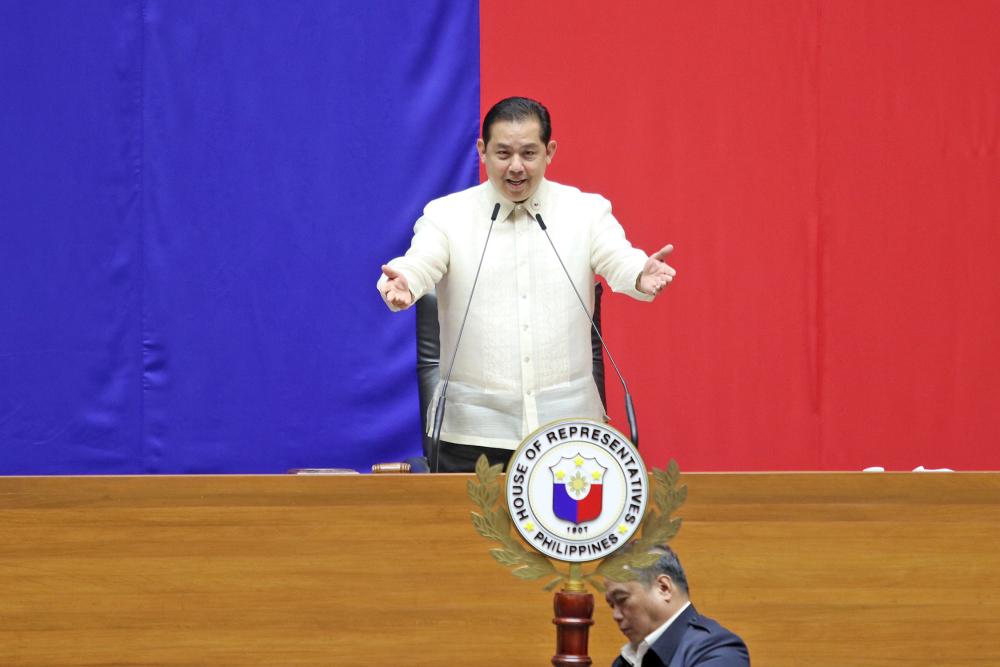
PRESIDENT Ferdinand Marcos Jr. on Monday called on Congress to pass his priority measures that will enhance government audits and procurement.
In his second State of the Nation Address (SONA), the President said a new government procurement law and government auditing code will empower the entire government, which is deemed a “transformative” solution amid the changing times.
“Once again, on this same principle, I urge Congress to enact a new Government Procurement Law and a new Government Auditing Code, to make government procurement and auditing more attuned to these changing times,” he said.
According to him, cooperation is “key” within and among government agencies, the public and private sectors, business and academia, the government and foreign partners, and Filipinos themselves.
“We need the help and skills of the whole government and entire nation. And so, we shall do the same for the next five years. We seek not only to become more effective, but more, to become truly transformative,” he said.
He said that this strategy would be put into practice through inter-agency collaboration, coordinated efforts across the three levels of government, and independent constitutional entities.
He added that private sector advisory councils and national-local mechanisms have also been organized to establish the needed linkages.
Marcos said the Mandanas-Garcia ruling of the Supreme Court in 2018, which reflects the mandate of the Constitution and the Local Government Code, will take effect “soonest” to improve collaboration between the LGUs and the national government.
Marcos said all of the LGUs’ necessary devolution transition plans have been completed.
“To fully prepare them for optimal devolution, the necessary technical and financial assistance is being extended to our local governments. In everything that we do, the enduring Filipino quality of Bayanihan will be our guide,” he added.
Fisheries code
Meanwhile, the President also urged Congress to pass amendments to the Fisheries Code.
“Our Fisheries Code must be revisited to incorporate and strengthen science-based analysis and determination of fishing areas. This approach will protect both the interests of our fisherfolk and our fisheries and aquatic resources,” he said.
“To this end, we will seek the support of Congress to amend the Code to guarantee sustainable development of our fisheries sector in harmony with environmental balance,” he added.
Marcos also asked Congress to pass the Tatak-Pinoy (Proudly Filipino) Law and the Blue Economy Law.
The proposed Tatak Pinoy Law, filed by Sen. Sonny Angara, seeks to enhance the capabilities and standards of local industries, level up the country’s exports, create jobs, and ultimately make the economy more vibrant and competitive with the rest of the world.
The Blue Economy Law, pending in the House, seeks to serve as the basis for marine spatial planning, the determination of investments to enhance maritime domain awareness, the preservation of the value and sustainability of ocean resources, and their protection from threats such as land-based pollution and overfishing.
To maximize the economic and social benefits of Philippine maritime industries, Rep. Jose Francisco Benitez of Negros Occidental filed House Bill 69 to prioritize programs that promote the blue economy in the interest of national economic security.
Benitez explained that the blue economy is a framework for sustainable development of marine and coastal resources based on principles of stewardship and social responsibility.
House Bill 69, if passed into law, will strengthen interagency coordination and planning to identify the best use of maritime zones, including the EEZ, promote blue finance or funding for special economic zones concentrating on sustainable and strategic maritime industries, and enhance maritime domain awareness to flag threats to our marine environment, including unauthorized access, overexploitation, and pollution.
Marcos also pushed for the passage of essential tax measures under the Medium-Term Fiscal Framework, including an excise tax on single-use plastics, a VAT on digital services, the rationalization of the mining fiscal regime, a motor vehicle user’s charge or road user’s tax, and the Military and Uniformed Personnel Pension.
All these tax bills and the MUP are now in advanced stages in the House.
Also, the President said the bills creating the Department of Water Resources and Services, the amendment of the Anti-Agricultural Smuggling Act, the amendment of the Cooperative Code, the Anti-Financial Account Scamming Act, and the proclamation granting amnesty to rebel returnees must be passed. All these bills are currently under deliberation in the lower house.
Marcos also asked Congress to give its nod to bills easing the payment of taxes, LGU income classification, and the Philippine Immigration Act. Speaker Ferdinand Martin Romualdez said these three bills, which are part of the LEDAC priorities, will be approved this year.
